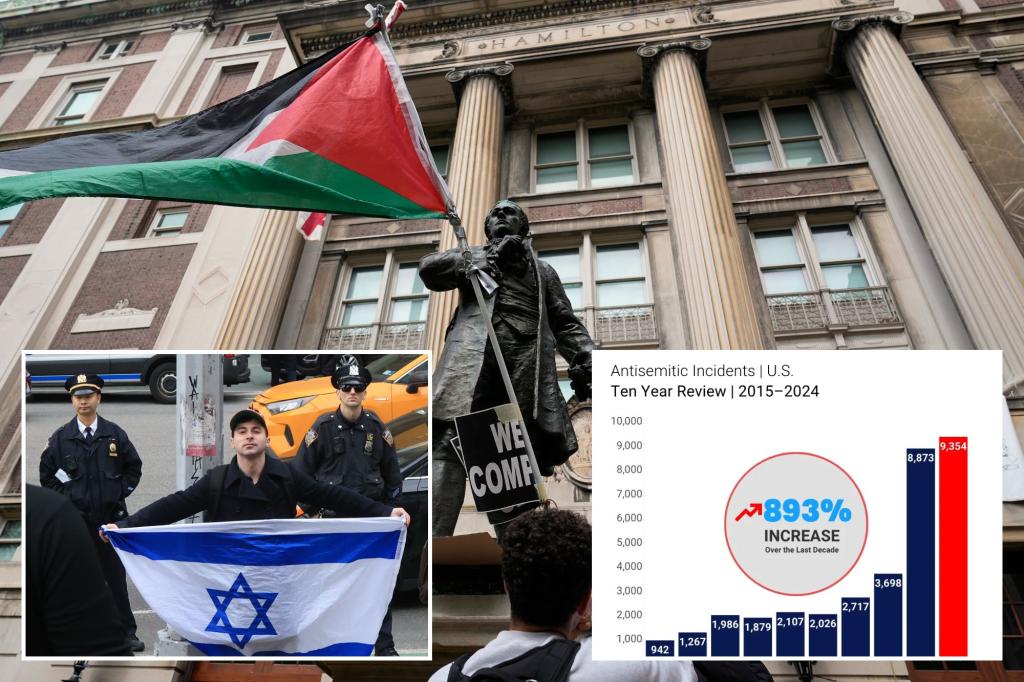Alarming Surge: American Jews Endured Over 25 Antisemitic Incidents Daily in 2022
In 2022, American Jews experienced an unprecedented wave of antisemitism, with more than 25 hate incidents occurring daily—marking a 36% increase from the previous year. According to a report by the Anti-Defamation League (ADL), these incidents ranged from harassment and vandalism to physical assaults, predominantly fueled by rising anti-Israel sentiment. The findings highlight a deepening crisis that demands urgent societal and policy responses.
Unprecedented Rise in Antisemitic Hate Crimes
The ADL’s annual audit documented 9,267 antisemitic incidents across the U.S. last year—the highest number since the organization began tracking such data in 1979. This equates to one incident every hour, with Jewish individuals and institutions targeted in schools, workplaces, and public spaces. Key findings include:
- Harassment: 6,542 cases, a 29% increase from 2021
- Vandalism: 2,240 incidents, including swastika graffiti and synagogue defacement
- Assaults: 485 violent attacks, up 26% year-over-year
“The numbers are staggering and reflect a toxic undercurrent in our society,” said Jonathan Greenblatt, CEO of the ADL. “Antisemitism isn’t just a Jewish problem—it’s an American problem that threatens democratic values.”
Anti-Israel Sentiment as a Primary Driver
Experts attribute the surge to escalating tensions surrounding Israel-Palestine discourse, which often spills into antisemitic rhetoric. Nearly 40% of incidents involved references to Zionism or Israel, with Jewish individuals disproportionately blamed for geopolitical conflicts.
Dr. Deborah Lipstadt, U.S. Special Envoy to Monitor and Combat Antisemitism, noted, “Criticism of Israel is legitimate, but when it morphs into attacks on Jewish students or businesses, it crosses into bigotry. The line is too often blurred.”
Social media amplified the trend, with platforms like Twitter and Telegram hosting antisemitic conspiracies. The ADL found that online hate speech correlated strongly with real-world violence.
Regional Hotspots and Targeted Communities
Incidents were concentrated in areas with large Jewish populations:
- New York: 1,218 incidents (13% of national total)
- California: 1,013 incidents
- New Jersey: 577 incidents
Orthodox Jews, visibly identifiable by religious attire, faced heightened risks. In Brooklyn, a 29-year-old man was punched and called slurs while walking to synagogue. Meanwhile, college campuses reported a 59% increase in antisemitic activity, often tied to anti-Israel protests.
Community Responses and Policy Gaps
Jewish organizations have bolstered security, with 72% of synagogues increasing patrols or installing surveillance. The federal government allocated $400 million in nonprofit security grants, but advocates argue more proactive measures are needed.
Rabbi Diana Fersko of Manhattan’s Village Temple stated, “We’re exhausted from constantly looking over our shoulders. Legislation must address not just consequences but prevention through education.”
Some states, like New York, have introduced mandatory Holocaust curricula, while others lag behind. Civil rights groups urge tech companies to enforce stricter hate-speech policies.
Broader Implications for Social Cohesion
The spike in antisemitism coincides with rising hate crimes against other minorities, suggesting a broader erosion of tolerance. FBI data shows a 12% increase in religious-based hate crimes overall, with Muslims and Sikhs also facing attacks.
Sociologist Dr. Ari Kelman warned, “Antisemitism is often the canary in the coal mine. When one group is targeted, others soon follow.”
Path Forward: Education, Advocacy, and Solidarity
Combating this crisis requires multi-pronged efforts:
- Education: Expand Holocaust and bias training in schools
- Legislation: Strengthen hate crime laws and enforcement
- Alliances: Foster interfaith and intercommunity coalitions
As Greenblatt emphasized, “Silence is complicity. Everyone—from policymakers to neighbors—must speak up.” Readers can take action by reporting incidents to the ADL or supporting local interfaith initiatives.
See more Update My News



